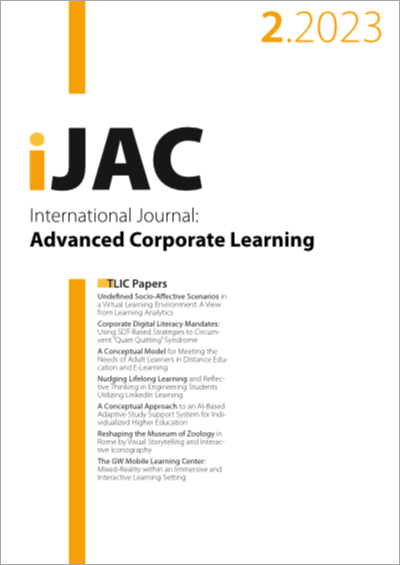A Conceptual Model for Meeting the Needs of Adult Learners in Distance Education and E-Learning
DOI:
https://doi.org/10.3991/ijac.v16i2.35729Keywords:
Adult Learners, Distance Education, e-Learning, Learning SciencesAbstract
More than 40% of undergraduate students are 24 years of age or older [1], and over half of these students are enrolled in distance education [2]. Yet, adults do not fare as well as traditional-aged college students who are four times as likely to graduate [3]. The workforce is both aging and becoming more age-diverse, re-sulting in the need to provide ongoing training for a range of learners [4]. There is some evidence that training performance declines with age [5]. Understanding the needs of the adult learner in distance education and e-learning is important for improving their experience and outcomes. By combining cognitive, social, and emotional factors, sensitive to the impact of context, we can develop program-ming that meets the needs of the whole learner. Drawing from the science of learning, I will outline the components of my conceptual model for meeting the needs of adult learners in distance education and e-learning. There is a diverse body of evidence-based instructional practices to support each of the factors in this model, but additional research may show significant interaction effects that may be especially beneficial for adult learners in distance education.
Downloads
Published
How to Cite
Issue
Section
License
Copyright (c) 2023 Anne Fensie

This work is licensed under a Creative Commons Attribution 4.0 International License.



